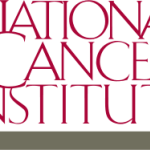- Industry: Government; Health care
- Number of terms: 6957
- Number of blossaries: 0
- Company Profile:
The National Cancer Institute (NCI) is part of the National Institutes of Health (NIH), which is one of 11 agencies that compose the Department of Health and Human Services (HHS). The NCI, established under the National Cancer Institute Act of 1937, is the Federal Government's principal agency for ...
An orally bioavailable non-steroidal androgen synthesis inhibitor of steroid 17alpha-monooxygenase (17,20 lyase) with potential antiandrogen activity. TAK-700 binds to and inhibits the steroid 17alpha-monooxygenase in both the testes and adrenal glands, thereby inhibiting androgen production. This may decrease androgen-dependent growth signaling and may inhibit cell proliferation of androgen-dependent tumor cells. The cytochrome P450 enzyme CYP17A1 (P450C17), localized to the endoplasmic reticulum (ER), exhibits both 17alpha-hydroxylase and 17,20-lyase activities, and plays a key role in the steroidogenic pathway that produces steroidal hormones, such as progestins, mineralocorticoids, glucocorticoids, androgens, and estrogens.
Industry:Pharmaceutical
An orally bioavailable non-steroidal androgen synthesis inhibitor of steroid 17alpha-monooxygenase (17,20 lyase) with potential antiandrogen activity. TAK-700 binds to and inhibits the steroid 17alpha-monooxygenase in both the testes and adrenal glands, thereby inhibiting androgen production. This may decrease androgen-dependent growth signaling and may inhibit cell proliferation of androgen-dependent tumor cells. The cytochrome P450 enzyme CYP17A1 (P450C17), localized to the endoplasmic reticulum (ER), exhibits both 17alpha-hydroxylase and 17,20-lyase activities, and plays a key role in the steroidogenic pathway that produces steroidal hormones, such as progestins, mineralocorticoids, glucocorticoids, androgens, and estrogens.
Industry:Pharmaceutical
An orally bioavailable nonsteroidal anti-inflammatory agent (NSAID) with potential antiangiogenic and antineoplastic activities. Apricoxib binds to and inhibits the enzyme cyclooxygenase-2 (COX-2), thereby inhibiting the conversion of arachidonic acid into prostaglandins. Apricoxib-mediated inhibition of COX-2 may induce tumor cell apoptosis and inhibit tumor cell proliferation and tumor angiogenesis. COX-related metabolic pathways may represent crucial regulators of cellular proliferation and angiogenesis.
Industry:Pharmaceutical
An orally bioavailable nutritional supplement. Juven contains the amino acids glutamine and arginine in addition to beta-hydroxy-beta-methylbutyrate (HMB). This agent may promote muscle protein synthesis and increase muscle mass.
Industry:Pharmaceutical
An orally bioavailable pan inhibitor of human fibroblast growth factor receptors (FGFRs) with potential antiangiogenic and antineoplastic activities. Pan FGFR kinase inhibitor BGJ398 selectively binds to and inhibits the activities of FGFRs, which may result in the inhibition of tumor angiogenesis and tumor cell proliferation, and the induction of tumor cell death. FGFRs are a family of receptor tyrosine kinases which may be upregulated in various tumor cell types and may be involved in tumor cell differentiation and proliferation, tumor angiogenesis, and tumor cell survival.
Industry:Pharmaceutical
An orally bioavailable pentafluoroethyl derivative of a mifepristone-related steroid with antiprogestagenic activity. Lonaprisan is a pure, highly receptor-selective progesterone receptor (PR) antagonist; binding of this agent to PRs inhibits PR activation and the associated proliferative effects. Unlike many other antiprogestins such as mifepristone, this agent does not appear to convert to an agonist in the presence of protein kinase A (PKA) activators and shows high antiprogestagenic activity on both progesterone receptor (PR) isoforms PR-A and PR-B.
Industry:Pharmaceutical
An orally bioavailable phosphatidylinositol 3-kinase (PI3K) inhibitor with potential antineoplastic activity. PI3K inhibitor BEZ235 specifically inhibits PIK3 in the PI3K/AKT kinase (or protein kinase B) signaling pathway, which may trigger the translocation of cytosolic Bax to the mitochondrial outer membrane, increasing mitochondrial membrane permeability; apoptotic cell death may ensue. Bax is a member of the proapoptotic Bcl2 family of proteins.
Industry:Pharmaceutical
An orally bioavailable phosphatidylinositol 3-kinase (PI3K) inhibitor with potential antineoplastic activity. PI3K inhibitor BYL719 specifically inhibits PIK3 in the PI3K/AKT kinase (or protein kinase B) signaling pathway, thereby inhibiting the activation of the PI3K signaling pathway. This may result in inhibition of tumor cell growth and survival in susceptible tumor cell populations. Activation of the PI3K signaling pathway is frequently associated with tumorigenesis. Dysregulated PI3K signaling may contribute to tumor resistance to a variety of antineoplastic agents.
Industry:Pharmaceutical
An orally bioavailable Polo-like kinase 1 (Plk1) inhibitor with potential antineoplastic activity. Polo-like kinase 1 inhibitor MK1496 selectively inhibits Plk1, inducing selective G2/M arrest followed by apoptosis in a variety of tumor cells while causing reversible cell arrest at the G1 and G2 stage without apoptosis in normal cells. Plk1, named after the polo gene of Drosophila melanogaster, is a serine/threonine protein kinase involved in regulating mitotic spindle function in a non-ATP competitive manner.
Industry:Pharmaceutical
An orally bioavailable proteasome inhibitor with potential antineoplastic activity. Proteasome inhibitor ONX 0912 inhibits the activity of the proteasome, thereby blocking the targeted proteolysis normally performed by the proteasome; this may result in an accumulation of unwanted or misfolded proteins. Disruption of various cell signaling pathways may follow, eventually leading to the induction of apoptosis and inhibition of tumor growth. Proteasomes are large protease complexes that degrade unneeded or damaged proteins that have been ubiquitinated.
Industry:Pharmaceutical
